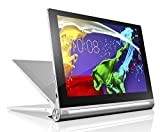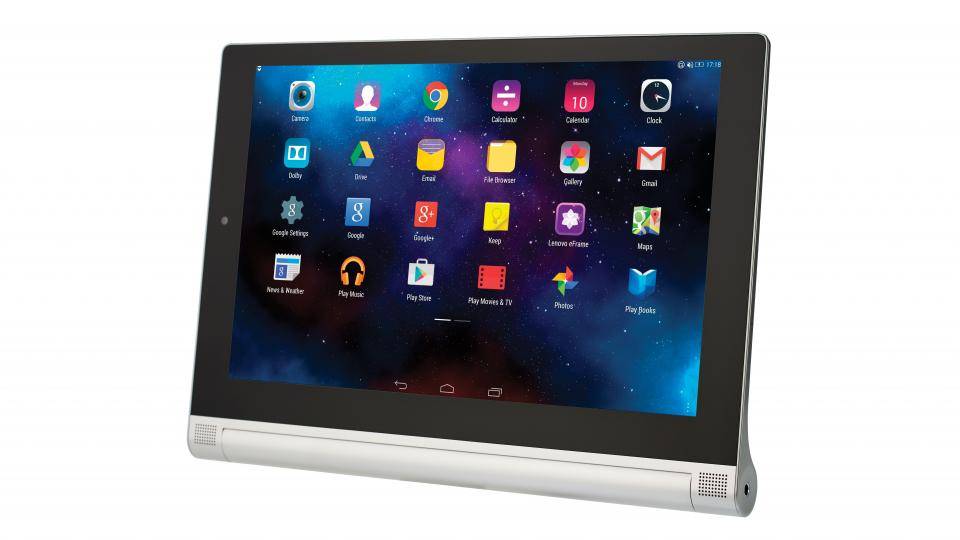When we reviewed the original Lenovo Yoga Tablet 10 we loved its design but were less keen on its poor display. This time around, Lenovo has improved the display’s quality considerably. While its predecessor only had a 1,280x800 resolution panel, the Yoga Tablet 2 has 1,920x,1,200 pixels, so making images and text look far crisper.

Our colour calibration tests showed the panel had decent black levels, with a reading of 0.32cd/m2, although a white level of 376.9 cd/m2 shows it’s not the brightest screen. It is fine for use outdoors when set at maximum brightness, however. The deep black level leads to an impressive contrast ratio of 1,148:1. However, the tablet's colour accuracy left a lot to be desired, covering just 64% of the sRGB colour gamut. The tablet's viewing angles are excellent, which is important as, due to its stand design, the Yoga Tablet 2 is designed to be used at a multitude of different angles.
One problem we encountered with the display, however, was the frenetic auto-brightness. Even under consistent indoor lighting the screen would change brightness every few minutes and sometimes would dim the screen below a usable level. In the end we turned auto-brightness off.
The Yoga Tablet series stands out thanks to for its integrated metal kickstand that lets you prop up the tablet at different angles. The stand is on a rotating pivot on one side of the tablet and allows you to position the tablet horizontally for easy typing, or propped up vertically for watching films. There’s also a hole for hanging the tablet up, which could be handy if you're using the tablet in the kitchen to look at a recipe.
The kickstand also provides a useful grip when you're holding the tablet in portrait mode. At 619g the Yoga Tablet 2 isn’t the lightest 10in tablet, but the grip goes some way to offsetting the extra weight. Most of the extra weight compared to other tablets is due to the metal kickstand itself. Although the kickstand feels robust, it’s not particularly well finished, feeling a bit sharp and rough along its edge.
We were particularly fond of the stereo front-facing speakers built into the kickstand. They produced clear and particularly loud sound. There’s not much bass presence, but for a tablet the sound was very respectable. The Yoga Tablet 2 also comes with a Dolby app for tuning the speakers, and this includes features such as dialogue enhancement. The speakers make the Yoga Tablet 2 a great choice for those looking to watch films or catch-up TV services from their tablet.
We also liked the easy-to-find round power button built into the side of the stand, similar to what you might find a laptop. On the opposite end you’ll find a headphone jack. The sides of the tablet are otherwise clutter-free with just a volume rocker that thoughtfully adapts to the orientation of the screen so that it’s obvious which button raises or lowers the volume. There’s also a microSD slot hidden away behind a flap behind the kickstand. This will let you expand the Yoga 2’s built-in 16GB of storage by up to 64GB.
Beyond the upgraded screen, the Yoga Tablet 2 has also seen upgrades internally. It’s powered by a quad-core Intel Atom Z3745 with a base frequency of 1.33GHz, but that can boost up to 1.86GHz. There’s also 2GB of RAM. It completed our SunSpider JavaScript browser benchmark in 741.5ms, which is very good for an Android tablet and puts it ahead of both the Google Nexus 9 and the Amazon Kindle Fire HDX 8.9 for browser performance.
